(ESP/ENG) Conductas Esperadas En Niños y Adolescentes Al Regresar A Clases Presenciales// Expected behaviors in children and adolescents when returning to classroom instruction
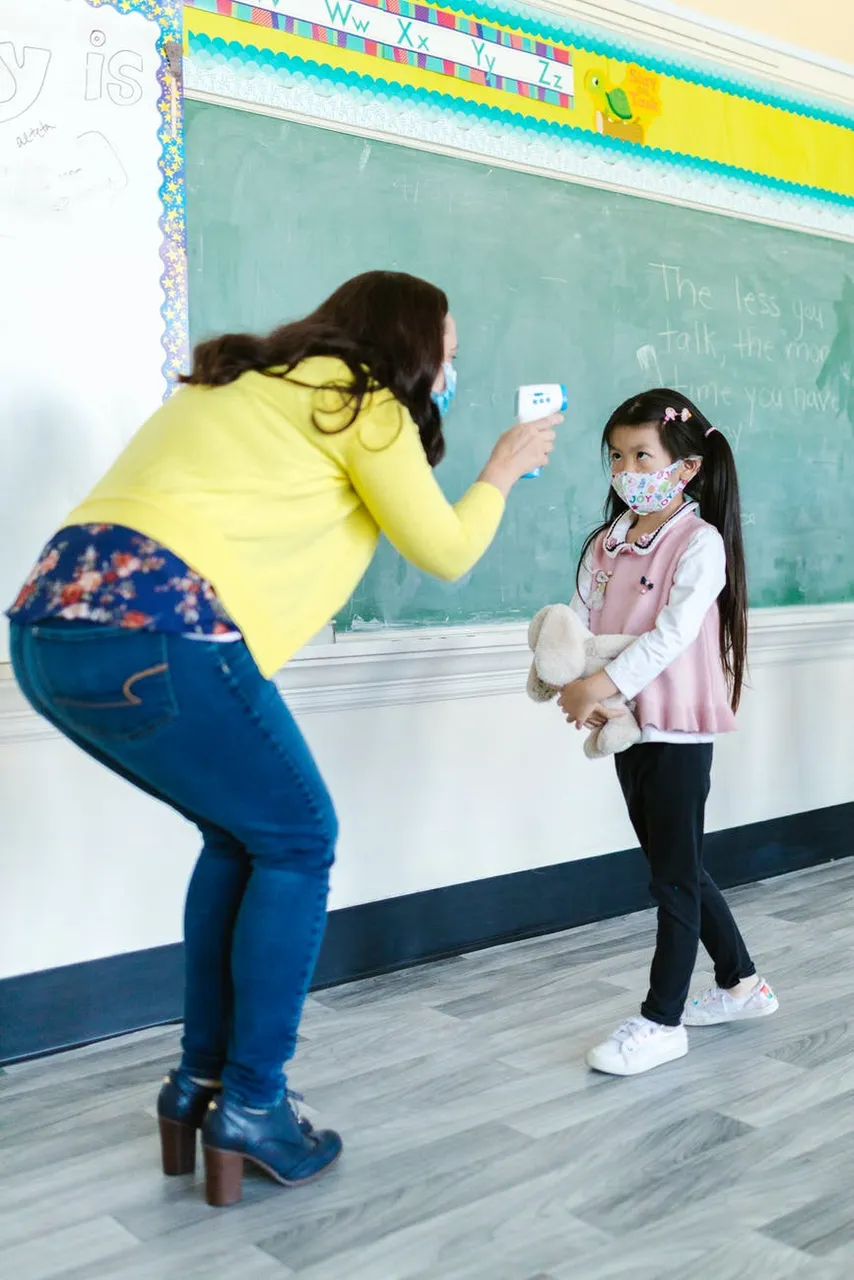
Fuente/ Source
Unos han fijado una posición de total desacuerdo por considerar que no estamos en condiciones para clases presenciales, ni en infraestructura, ni en medidas de bioseguridad y hasta existe el temor social del habito de cuidado entre los niños y adolescentes que no cuentan con vacunación ante el Covid-19.
Por otra parte se encuentran las personas que apoyan una reincorporación educativa presencial en vista del evidente retraso en materia académica, en aras de que no siga avanzando apuestan a la adaptabilidad y al uso de estrategias adecuadas de prevención y cuidado de la salud.
Lo que deseo resaltarles es que independientemente de las decisiones tomadas desde las cúpulas ministeriales, pues existe una gran realidad y es que psicológicamente nuestros niños y adolescentes van a manifestar una serie de conductas resultantes de este periodo de cuarentena.
Hello my Hivelovers, the return to school classrooms is an issue that in Venezuela has been the cause of many conflicting positions.
Some have set a position of total disagreement because they consider that we are not in conditions for face-to-face classes, neither in infrastructure, nor in biosecurity measures and there is even social fear of the habit of care among children and adolescents who do not have vaccination before the Covid-19.
On the other hand, there are those who support the reincorporation of face-to-face education in view of the evident delay in academic matters, in order to avoid further progress, they bet on adaptability and the use of appropriate strategies for prevention and health care.
What I want to emphasize is that regardless of the decisions taken from the ministerial leadership, there is a great reality and is that psychologically our children and adolescents will manifest a series of behaviors resulting from this period of quarantine.

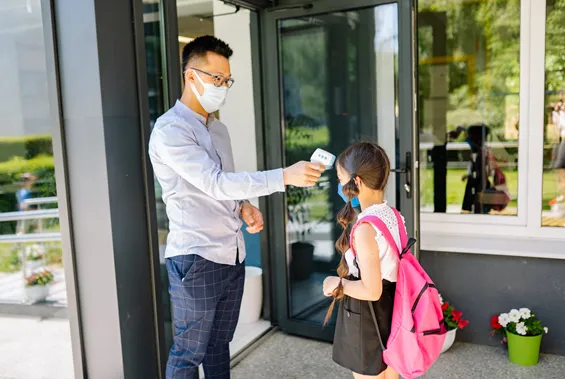
Fuente/ Source
Es por ello que debemos estar atentos a que la conducta que nuestros hijos evidencian tiene que ver con lo que piensan y lo que sienten respecto en este caso al regreso a clases en aulas.
Que incluso en este proceso existe una influencia familiar y social que va a contribuir en como ellos piensan, sienten y se comportan respecto a la pandemia que fue el motivo del confinamiento y a lo que ahora representa volver a la escuela.
When referring to the behaviors that may be manifested we must remember that such behavior is part of a process where thoughts, emotions and then behavior are involved.
That is why we must be aware that the behavior that our children show has to do with what they think and what they feel about going back to school.
That even in this process there is a family and social influence that will contribute to how they think, feel and behave with respect to the pandemic that was the reason for the confinement and what now represents going back to school.

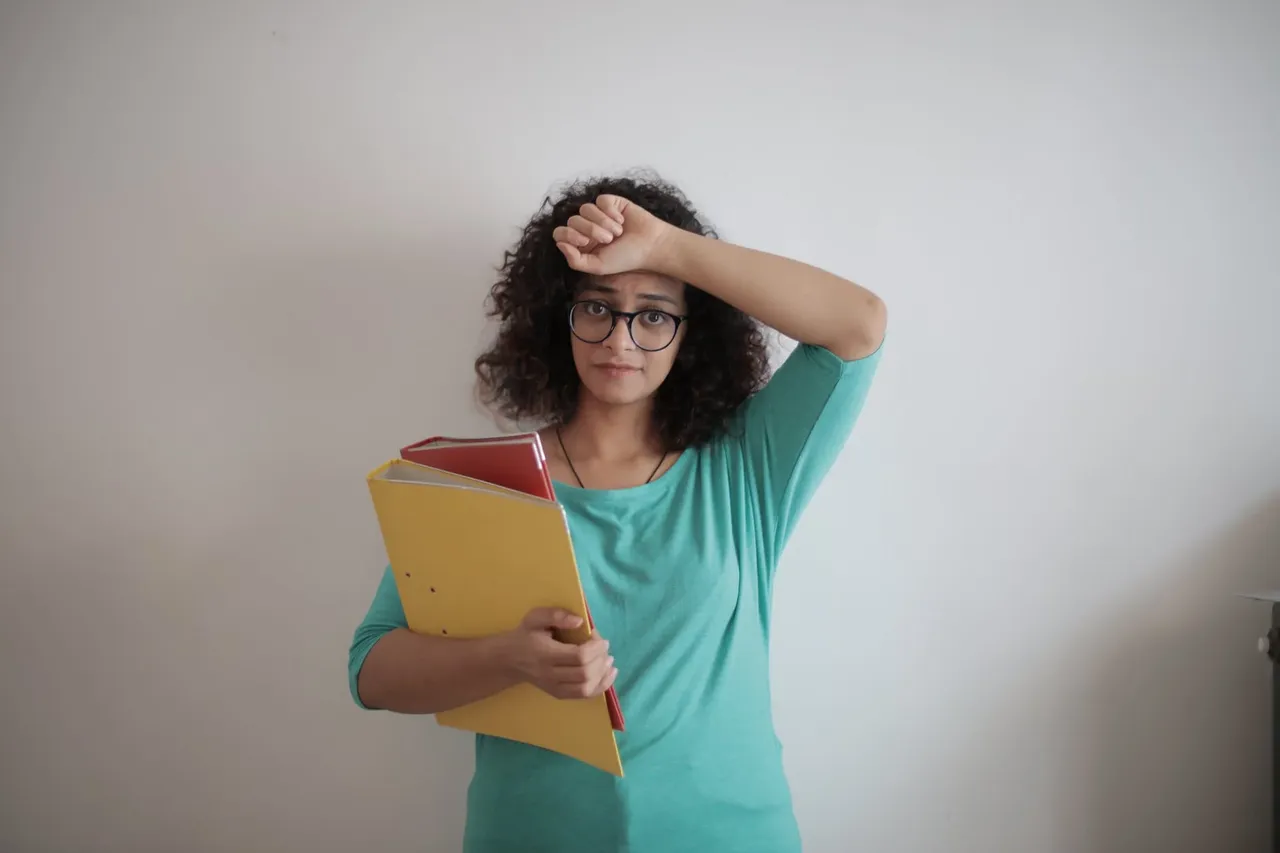
Fuente/ Source
- Modificación de los hábitos y rutinas, recordemos que antes de la pandemia ya nuestros hijos tenían una rutina escolar y hasta con actividades extracurriculares, en las cuales tenían unos hábitos de estudio ya establecidos. Al enfrentarnos a la cuarentena pues dichas rutinas cambiaron y tuvieron que adaptarse a recibir educación en casa con mama o papa como maestros e incluso con la accesibilidad dispositivos electrónicos que antes no eran tan utilizados
- Una socialización limitada donde en muchos casos en casa no existe otro niño con el cual compartir, y se han limitado a compartir con sus compañeros, ante lo que se han visto afectadas su autoestima, su seguridad, sus habilidades sociales.
- Se han enfrentado al duelo, no solo de pérdidas familiares por el Covid-19 sino también perdidas emocionales al no tener interacción social como antes. A
- Muchos casos de niños y adolescentes que han tenido que pasar este confinamiento en ambientes hostiles, llenos de maltrato, hostilidad, en fin toxicidad.
It is important to note that children and adolescents have experienced a series of changes just like adults:
- Modification of habits and routines, let us remember that before the pandemic our children already had a school routine and even with extracurricular activities, in which they had already established study habits. When faced with the quarantine, these routines changed and they had to adapt to receive education at home with mom or dad as teachers and even with the accessibility of electronic devices that were not so widely used before.
- A limited socialization where in many cases at home there is no other child to share with, and they have been limited to share with their peers, which has affected their self-esteem, their security, their social skills.
- They have faced grieving, not only family losses due to Covid-19 but also emotional losses due to not having social interaction as before. A
- Many cases of children and adolescents who have had to go through this confinement in hostile environments, full of mistreatment, hostility, in short toxicity.
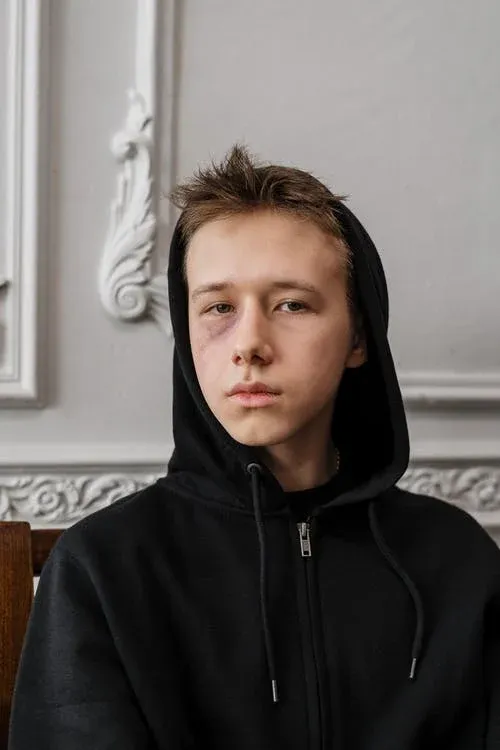
Fuente/ Source
In short, our children have also suffered from this pandemic, they do not express it the same way we do and it has definitely caused changes that will be felt in the school classrooms.

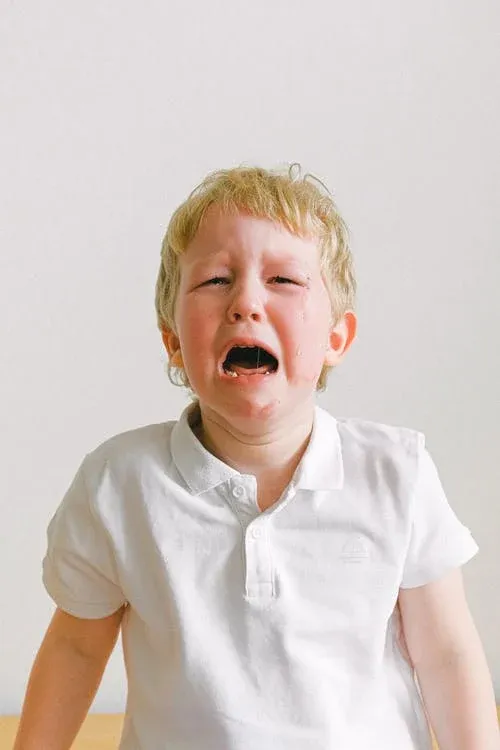
Fuente/ Source
Ansiedades: debido a que tienen incertidumbre de que va a pasar al regresar a clases, de cómo serán las cosas, y es allí donde han aumentado conductas que se toman como inapropiadas como berrinches, llantos, explosiones de irritabilidad. Sin embargo recordemos que es producto de la ansiedad que no saben manejar.
Miedos y Confusiones: A tal punto que prefieren quedarse en casa ya que no quieren enfermarse, no saben que conseguirán en la escuela, ni como será este proceso. sí como sentirán perdida de confianza al apartarse de sus figuras de apego
Retraimiento: evidenciándose aislamientos, se alejan y evitan contactos con otros niños y poco se expresan.
Irritabilidad: Es donde podemos observar enojo, rabia tanto en niños como adolescentes ante la incertidumbre, los constantes cambios y el hecho de tener que adaptarse, teniendo un cumulo de emociones que no saben como procesar.
In the return to school and once mentioned aspects that should be considered to analyze the behaviors of our children and adolescents, may come to light:
Anxieties: due to the fact that they are uncertain about what is going to happen when they go back to school, how things will be, and that is where they have increased behaviors that are taken as inappropriate such as tantrums, crying, explosions of irritability. However, let's remember that it is a product of anxiety that they do not know how to handle.
Fears and Confusions: To such an extent that they prefer to stay home because they do not want to get sick, do not know what they will get at school, or how this process will be. yes as they will feel loss of confidence when away from their attachment figures
Retraction: evidencing isolation, they move away and avoid contact with other children and do not express themselves very much.
Irritability: This is where we can observe anger, rage in both children and adolescents in the face of uncertainty, constant changes and the fact of having to adapt, having an accumulation of emotions that they do not know how to process.
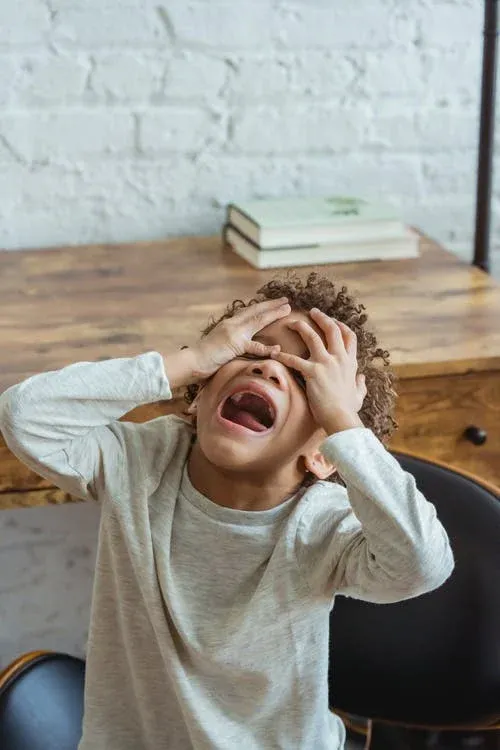
Fuente/ Source

Personalmente tengo sentimientos encontrados acerca de este regreso a clases presenciales en Venezuela si llega a hacerse realidad, pero al igual que hemos dedicado esfuerzos en hacerles ver lo que implicaba la pandemia y como cuidarnos pues desde el hogar sigamos fortaleciendo estas enseñanzas.
Tratemos de bajar sus ansiedades y de prepararlos a los posibles escenarios que se les presenten en la escuela si regresan.
Cuidemos nuestras opiniones al respecto frente a ellos para no generar mas angustias, recordemos que aprenden por modelado y si ven que les brindamos seguridad y confianza, que ante las circunstancia que pueda presentarse les apoyamos a prepararse pues será mas sencillo que ellos puedan manejar la situación y sus emociones al respecto.
Padres comuníquense con sus hijos, bríndenle apoyo y motívenlos a que puede que regresen nuevamente a su escuela a vivir nuevas y gratas experiencias.
Our children, like us, have had to learn to live in pandemic conditions, they have had to adapt and we must remember that it is more difficult for them to express and manage what they feel.
I personally have mixed feelings about this return to classes in Venezuela if it becomes a reality, but just as we have dedicated efforts to make them see what the pandemic implies and how to take care of ourselves, let's continue to strengthen these teachings at home.
Let's try to lower their anxieties and prepare them for the possible scenarios they may face at school if they return.
Let's be careful with our opinions in front of them so as not to generate more anxieties, let's remember that they learn by modeling and if they see that we provide them with security and confidence, that we support them in preparing for the circumstances that may arise, it will be easier for them to handle the situation and their emotions in this regard.
Parents communicate with your children, give them support and encourage them to return to school to live new and pleasant experiences.
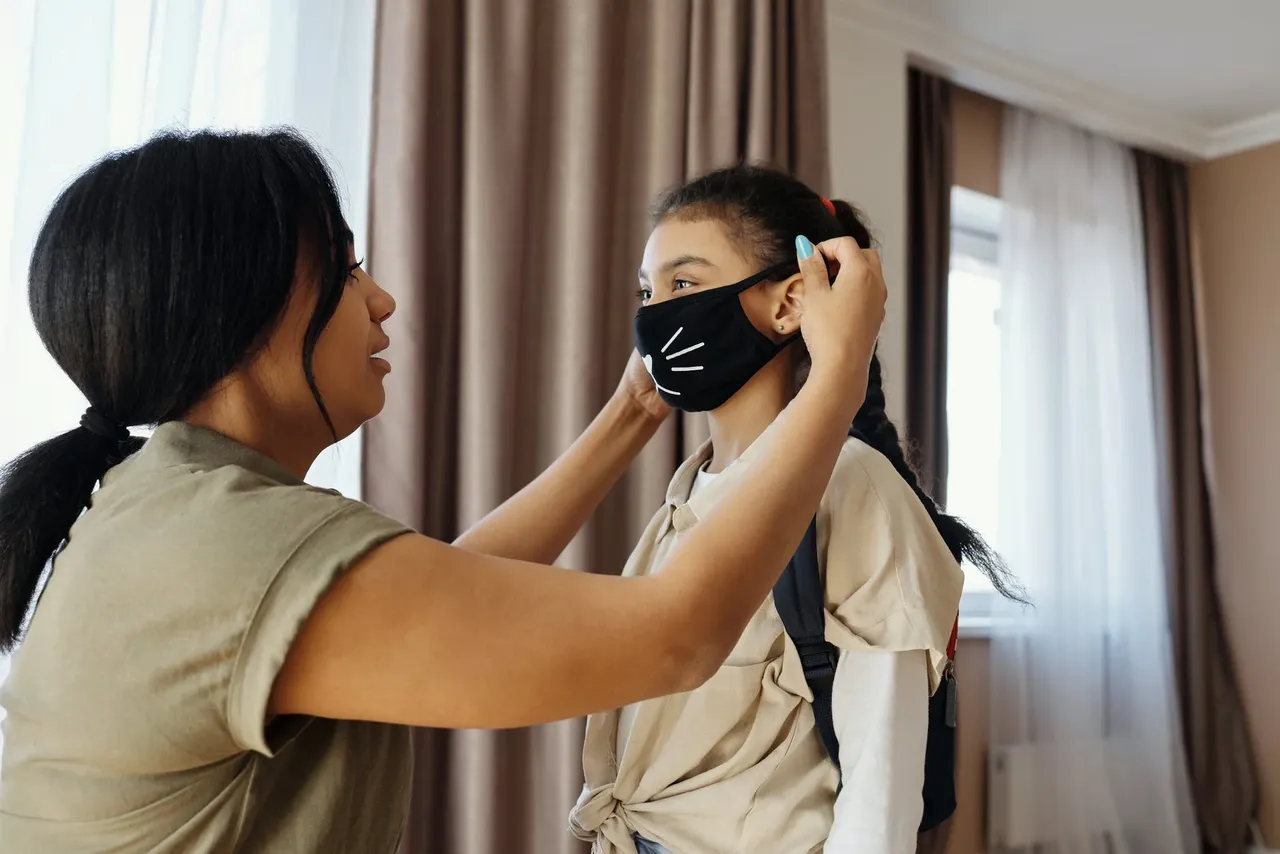
Fuente/ Source

I hope you have enjoyed this post, that it has been thought-provoking material and that it has made you remember that just as this time of quarantine and return to many activities has been a challenge for us, so it has been for them. Let's support them wherever they are, at home or at school.


El contenido es de mi propiedad.
Los separadores han sido diseñados por mi, utilizando power point.
El traductor empleado ha sido Deepl.com
The content is my property.
The separators have been designed by me, using power point.
The translator used was Deepl.com.

